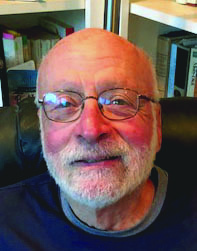Up on Hawthorn Hill
Wondering where have all the bluebirds gone
 Ever since we moved into our house on the hill, there have been recurring natural patterns that have enriched our lives. One of those is the annual return of at least one pair of bluebirds.
Ever since we moved into our house on the hill, there have been recurring natural patterns that have enriched our lives. One of those is the annual return of at least one pair of bluebirds.
Some summers we have been lucky enough to share the place with two nesting pairs. If my notes are accurate (trusting notes more than memory these days!) normal bluebird behavior is to hang out here for a few days upon arrival, check the place out, scope out available real estate, grab a few meals and then disappear for a week or so before returning to set up shop. Last spring, a lone male appeared, perched atop a locust fence post not far from two available boxes, helped himself to the local fare for several days and then flew off, never to return again.
When it became all too clear to me that we were to be forsaken once again, my spirits plummeted. Truth is, I start thinking about their return once the snows ebb and warmer weather enables me to sit on our deck in a semi-meditative state to watch and wait.
Their annual return has for me what Wordsworth characterized as a “renovating virtue.” The first sighting always enlivens my spirit. It revives me. It reassures me that nature’s enduring patterns are intact and that all is right with the world.
In these disturbing times, any spiritual buoyancy that one can feel is well worth the wait.
It used to be that the swallows would reappear first, followed by the bluebirds and then, much later, those noisy, chirpy house wrens would show up well after most of the ideal real estate had been claimed.
Over the years, I have put up several wren boxes, but always far away from the other boxes. That has always seemed to allot just enough space and preferred housing for all our finicky summer guests. I normally leave the boxes out over winter, but after the first wren swarm of two years ago, I took them all down, putting them up only when I felt that perhaps setting them out a bit later might deter the wrens from lording over the place. Not so. Last year several pairs of tree swallows found suitable homes, while in the bluebirds’ absence, the wrens appropriated every other available box.
One pair, deciding that two families are always better than one, took up residence in my grandson’s box that just happened to hang on a hook several feet from the chair I sit in on the porch to read most warm afternoons. If they were not perched atop the box roof belting out their peculiarly cacophonous chatter, they would alight on the hammock several feet away in the woods and croon for all the world to hear.
They won this territorial battle most of time. I am one of those people who requires absolute silence when reading. Thoreau wrote that he had never found a companion as companionable as solitude. We are kindred spirits on that score. This from one of perhaps a very few people who cannot abide fireworks. Or, noise of any kind. To me, there is music in silence.
This spring, the world regained its balance. Without much waiting and watching at all, a pair of bluebirds showed up right on schedule, followed by several pairs of tree swallows. Without much fanfare and, I might point out, ideological or territorial bickering, each pair found a suitable home and went about the work of nest building. The swallow kids fledged a week ago and are now way up in the sky swirling about doing their swallow thing.
Unfortunately, the bluebird kids did not make it. I watched momma for several weeks build her nest while dad kept guard. Then one morning it occurred to me that something was amiss. Quiet in the nest box and neither male nor female anywhere in sight.
I opened their box and found four lifeless babies. I took the nest out, laid it softly on the ground, and then walked away.
A line from a W.S. Merwin poem came to mind: “Death, however reckoned, is hard to dispose of.” Happy that the bluebirds are back, yet sad that for whatever reasons these little guys’ lives were just not meant to be. I said that things were again in balance. Death is part of that balance.
Still, and I am sure Gabby would agree, it too is a reality difficult to dispose of.

